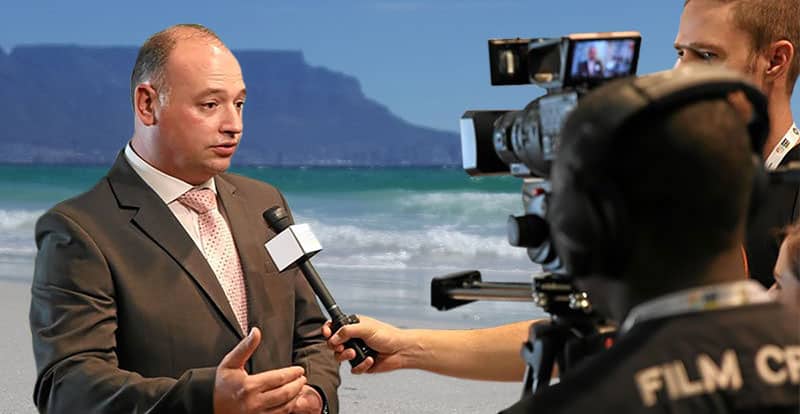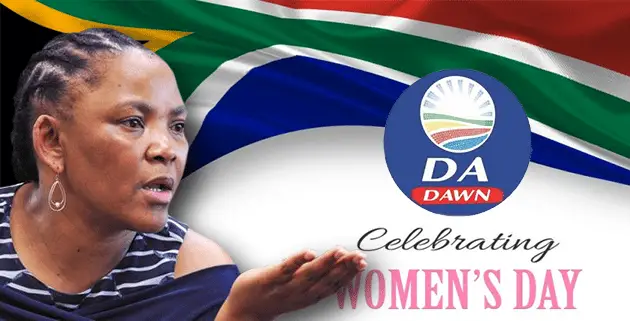iStore Revokes Study Partner Deal for Tourist Guides
This opinion piece by Francois Collin, Media Liason Officer at the National Federation of Tourist Guides and Affiliates (NFTGA), recounts his personal experience in dealing with an iStore located in Menlyn, Pretoria.
I am writing this as an open letter from the National Federation of Tourist Guides and Affiliates (NFTGA), to iStore (the largest Apple Premium Reseller in South Africa).
iStore offers, amongst other promotions, an incentive programme for learners and educators, the “Back to School Promotion”, but there is a catch, and this catch leaves the bulk of the tourism guiding industry out in the cold. This is the issue that I wish to address as Media Liaison Director for NFTGA.
What inspired me to write this letter?
I went to the iStore in Menlyn, Pretoria, to enquire about the “Back to School Promotion” with the aim of purchasing a MacBook Pro laptop for a lecturer. The laptop was to be used as a tool in preparing for and presenting lectures, presentations, online course content and learner assignments for the CATHSSETA accredited NQF4 Tourist Guiding National Certificate course.

The promotion, a screenshot of which is shown above, clearly states that it continues until 28 March 2020. My visit to the store was on 13/02 around 14:00-15:00. The sign advertising the promotion was no longer on display, but the store manager was willing to honour the promotion.
I would like to mention that Chris, the store manager of the iStore in Menlyn was very helpful, although his efforts at negotiating with his superiors were unsuccessful. The overall experience at the iStore was highly discouraging, and I left without purchasing the laptop.
I disagree with the iStore perception regarding the standing of various qualifications in South Africa, and question what, in their opinion, constitutes higher education students, teachers and lecturers, specifically with reference to the tourism industry.

If a store advertises a promotion for “higher education students, teachers and lecturers”, then all channels of higher education have the same entitlement to that promotion.
It is one thing for a store to have a promotion that targets specific markets and courses of study, such as university bachelor’s degrees and postgraduate degrees, but for a store to advertise a generic promotion and then to renege on the spirit of it, leaves me with a sour taste in the mouth!
When a store excludes certain groups of learners and lecturers from a promotion intended for higher education, it states through the policies it implements, that the qualifications in question are not relevant on the higher education level, or that the accredited training service providers offering these qualifications are not considered by them as higher education entities.
This short-sighted, cynical and disingenuous approach towards a segment of their target market could negatively influence a learner’s perception of their chosen career, and discourage the learner from further effort to excel and become a professional.
In this specific case, by not recognising the accredited training service providers, iStore infers that FETC Certificate courses in Tourism Guiding on NQF level 4 offered by them, are for all intents and purposes not worthy of the label “higher education”.
This is very unfortunate, as a career in tourist guiding is very challenging and rewarding, with ample opportunity for personal growth and further study. It is a career that also has a disproportionate potential to contribute to downstream economic growth and prosperity of the country.
The status of Tourist Guiding in South Africa today:
21 February 2020 was recognised as ‘International Tourist Guide Day.’ In addition, the National Department of Tourism will be hosting ‘International Tourist Guide Day’ celebrations in Johannesburg on the 12th and 13th of May this year. The theme for the conference will be “Tourist Guides – Contributors to Sustainable Tourism and Jobs”. The event will serve as a platform to recognise the current challenges that may impede tourism growth and development in the country.
It is evident that one of the biggest challenges to overcome is that of perception and awareness of the tourist guiding profession by the general public, and even by many in the industry, as well as by others that look down upon those that study, lecture and work in tourism.
Tourists have high expectations, and a good tourist guide can turn their holiday into a series of unforgettable, positive memories. For tourist guides to meet these expectations, they need training of a high standard. Most people are not aware of this. The general assumption is that one just wakes up one morning with an itch to travel, and becomes a guide.
To many, a tourist guide is just someone who has an easy job, a job where lots of fun is had while visiting lots of really nice places. In fact, most people think that being a tourist guide is the same as being permanently on holiday. The reality is far from this, and this perception needs to change because it not only disadvantages those practising tourist guiding as a career but also because it creates unrealistic expectations in many prospective guides.
I would like to focus on the role, and importance of the tourist guide in the tourism industry, as they are the most visible ambassadors of “Brand South Africa”. Their job requires responsibility and maturity, expertise in specialised fields of study and practice, a broad general knowledge base, the ability to communicate and plan, the ability to interact at various levels with various target audiences, and the ability to professionally deliver a high level of customer satisfaction.
As per the National Department of Tourism’s Tourism Sector, Human Resources Development Strategy 2017-2027 informed by the Skills Audit Report 2017, the two occupations identified for enhanced learning and career development through professionalisation in the tourism industry are chefs and tourist guides.
Training and Education for a successful and competitive tourism industry
The importance of acquiring skills that enable South Africa’s youth to find jobs and earn higher wages is obvious. An increase in tertiary education enrolments and graduation rates would go a long way towards addressing South Africa’s skills gap. The knock-on effects include a reduction in the inequality of opportunities, poverty alleviation and economic growth in the country.
There is growing recognition in South Africa for the need to expand the post-school-education-training system to enrol prospective students in higher institutions of learning, including technical and vocational education and training colleges and sector community colleges.
The Department of Higher Education and Training is responsible for providing the strategic direction in developing an effective higher education system and managing the government’s responsibilities for the regulation of the higher education system. This includes supporting the integration of the registration process of hybrid private education institutions that offer programmes in both the FET, or Further Education and Training, and the HE, or Higher Education sectors.
In this context, it is important to understand that universities are directed at providing education via an academic curriculum, whereas education may also be acquired via a vocational curriculum. In the case of tourist guiding, the qualification requires that learners follow a curriculum that includes both academic and vocational components.
SAQA, the South African Qualifications Authority is responsible for registering qualifications. These qualifications may be obtained via different learning pathways and curricula.
The SETAS are the Sector Education and Training Authorities. They are responsible for accrediting training service providers for various learning programmes. This is where the NQF or National Qualifications Framework comes in. In order to obtain accreditation as a tourist guide, a learner may enrol at a college, or at a CATHSSETA accredited training service provider, and providing that the qualification achieved contains the required Unit Standards, it is equivalent.
CATHSSETA, the Culture, Art, Tourism, Hospitality, and Sport Sector Education and Training Authority has a mandate to facilitate skills development within the sub-sectors described above, through the disbursement of grants for learning programmes and monitoring of education and training as outlined in the National Skills Development Strategy. CATHSSETA’s functions and responsibilities also include the development and implementation of a sector skills plan including supporting and administering learning programmes, supporting the implementation of the National Qualifications Framework (NQF) and reporting to the Minister of Higher Education and Training.
Private sector incentive programmes that support education
Programmes such as the iStore programme that are aimed at rewarding learners and educators have significant tangible benefits for their beneficiaries, but let’s be pragmatic, these programmes also have a long term return on investment for the retailer. This return on investment manifests itself as future business and brand fidelity.
Short-sighted and cynical implementation of what is otherwise a great policy has the potential to exert a detrimental effect instead of the positive effect that is intended.
I am not comparing full qualifications endorsed and accredited on the NQF nor the National Certificate that they convey to a University degree. I am, however, making the supporting statement that they are indeed included in the description “Higher Education”, and as such the learners and educators should be entitled to the benefits reserved for the sector.
In closing, I would like to urge iStore to reconsider their standpoint on the recognition of training service providers, and the validity of learning programmes that result in full qualifications endorsed and accredited on the NQF.




